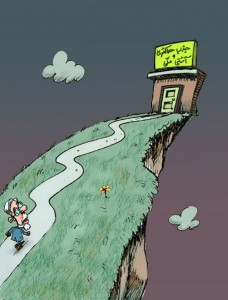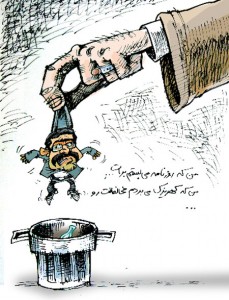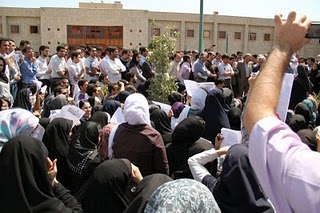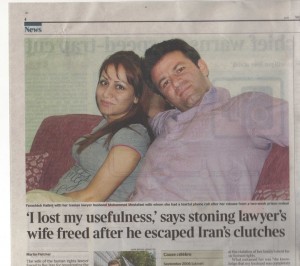Sunday
Aug292010
China This Week: China-Japan Economic Dialogue; Move on North Korea Talks; Partnership with South Africa and Vietnam
 Sunday, August 29, 2010 at 8:05
Sunday, August 29, 2010 at 8:05  Third China-Japan Economic Dialogue: Chinese Vice Premier Wang Qishan said Saturday that bilateral trade between China and Japan has recovered and exceeded the level before the global financial crisis.
Third China-Japan Economic Dialogue: Chinese Vice Premier Wang Qishan said Saturday that bilateral trade between China and Japan has recovered and exceeded the level before the global financial crisis.Wang made the remarks at the opening of the third China-Japan high-level economic dialogue, which he chaired with Japanese Foreign Minister Okada Katsuya.
The two countries had maintained sound cooperation in energy-saving, environment protection, food safety, product quality and the construction of China-Japan-ROK Free Trade Area, Wang said.
China, South Africa “Strategic Partnership”: President Hu Jintao and his South African counterpart Jacob Zuma on Tuesday raised bilateral ties to a "comprehensive strategic partnership", opening more avenues to expand trade and strengthen relations between Beijing and the largest African economy.
In the Beijing Declaration, the two sides based a comprehensive strategic partnership on equality, mutual benefit, and common development. They agreed to provide mutual technical support in the areas of the green economy, skills development, and industrial financing.
Chinese, S Korean Nuclear Envoys Meet: China's special representative for Korean Peninsula affairs Wu Dawei on Thursday met with South Korea's top nuclear envoy Wi Sung-lac for talks on restarting the long- stalled six-party discussions on denuclearisation of the Korean Peninsula.
Wu visited North Korea from 16 to 18 August, meeting Foreign Minister Pak Ui Chun and Vice Foreign Ministers Kim Kye-gwan and Kim Song Gi.
Beijing hosts the multilateral talks that include both Koreas, the US, Japan, and Russia. Pyongyang unilaterally pulled out of the discussions in April 2009.
China Aid to Flood-hit Pakistan: More relief supplies, worth 20 million yuan ($2.94 million), have been sent from China to flood-hit Pakistan, the Ministry of Commerce said in a statement Wednesday.
China was one of the first countries to respond delivering 10 million yuan on 4 August. Beijing indicated it will offer an additional 60 million yuan of supplies to Pakistan, Ministry of Commerce official Chong Quan announced while meeting with Masood Khan, Pakistani ambassador to China.
Chinese Defense Minister meets Greek Air Force Chief: Chinese Defense Minister Liang Guanglie on Monday met with Vasileios Klokozas, chief of the General Staff of the Greek Air Force, as the two sides pledged to boost military exchange and cooperation.
Vietnam, China Vow to Enhance Trade: Vietnamese Minister of Industry and Trade Vu Huy Hoang and Chinese Minister of Commerce Chen Deming and China declared Monday that the two countries would enhance trade and investment cooperation
Hoang asked China to encourage more imports and to create favorable conditions for Vietnamese companies. He also encouraged big Chinese firms to invest in Vietnam. Chen offered agreement and said Beijing will help Vietnam in training officials,
Trade between Vietnam and China was more than $20 billion in 2009 and has exceeded $13 billion in the first seven months this year.
Vietnam welcomes China's Military Development: Vice Defense Minister Nguyen Chi Vinh said Wednesday Vietnam welcomes China's military development. The Chinese military can contribute to disaster relief efforts in the region, he said.
Vinh is in Beijing for consultations with Chinese defense ministry officials ahead of the first ASEAN Defense Ministers' Meeting Plus to be held in the Vietnamese capital Hanoi in October.
China, Japan Support Climate Talks: China and Japan are willing to push forward international climate change talks, said Zhang Ping, minister of the National Development and Reform Commission, on the sidelines of the third China-Japan high-level economic dialogue.
He said China and Japan regard energy-saving and environmental protection as important areas, linked to the growth of economic cooperation between both countries.
The two countries agreed to hold the fifth China-Japan forum on energy-saving and environmental protection in late October in Tokyo to promote green economy and cooperation on low-carbon technologies.
Enquiry into Deadly Plane Crash: Chinese Vice Premier Zhang Dejiang has ordered a thorough probe into Tuesday night's plane crash in Northeast China's Heilongjiang province.
At least 42 people died while 54 others survived when the Brazilian-made Embraer E-190 jet crashed as it approached Lindu Airport in Yichun city.
Amendments to Hong Kong's Basic Law: China's top legislature on Saturday approved an amendment to the Basic Law of the Hong Kong Special Administrative Region regarding the method of selecting Hong Kong's Chief Executive.
Hong Kong, Philippines to Exchange Hostage Probe Info: Hong Kong Police will investigate the deaths of Hong Kong tourists slain in Monday's hostage tragedy in Manila and will exchange information with the Philippine authorities through Interpol when necessary, Under Secretary for Security Lai Tung-kwok said Saturday.
Hong Kong has sent two Police officers to Manila to assist in the investigation, and Lai said more officers will be sent if necessary.
Deaths Up in Industrial Accidents: The death toll from major industrial accidents jumped 50 percent in the first seven months of this year, the State Administration of Work Safety said on Friday.
From January to July, 53 major incidents in the country killed 904 people. In a hot and rain-plagued August, there have been 13 major incidents and 210 people killed or missing.
The accidents included the deadly explosion in a firecracker factory and this week's plane crash that ended Chinese civil aviation's 2,000-plus days of flight safety. Both incidents occurred in Yichun City in northeast China's Heilongjiang province.
China's Crackdown on Illegal Labour Export: Chinese authorities are intensifying their crackdown on the illegal outsourcing of labour in a bid to protect the legal rights of overseas workers.
The Ministry of Commerce and the Ministry of Foreign Affairs issued an emergency circular prohibiting illegal labuor agencies from dispatching labourers abroad.
The circular also bans the subcontracting of overseas labour service by domestic contract engineering firms.
China has been exporting labourers as fishermen, construction workers, or farmhands. More than 340,000 Chinese people worked abroad in 2009, according to statistics from the Ministry of Commerce.
China to Spend Millions on Disaster Prevention: China plans to spend 2.23 billion yuan ($328 million) to improve disaster prevention systems in a mountainous northwest China town devastated by a landslide earlier this month.
The plan is scheduled to be carried out in three phases from 2010 to 2012..
China Green Belt to stop Deserts merging: China has started an ambitious project to plant a green belt between the country's third and fourth largest deserts to stop them converging, said Wang Xiaodong, a forestry official in northern Inner Mongolia autonomous region.
"It is the first time in China that a green belt is being planted between two deserts. The project is expected to take five years to plant a 202-km (125 miles) long and 5 to 15-km wide stripe of vegetation between Badain Jaran Desert and Tengger Desert," said Wang.
tagged  ASEAN,
ASEAN,  Association of Southeast Asian Nations,
Association of Southeast Asian Nations,  Badain Jaran Desert,
Badain Jaran Desert,  Chen Deming,
Chen Deming,  China-Japan-ROK Free Trade Area,
China-Japan-ROK Free Trade Area,  Climate change talks,
Climate change talks,  Comprehensive strategic partnership,
Comprehensive strategic partnership,  Democratic People's Republic of Korea,
Democratic People's Republic of Korea,  Disaster prevention,
Disaster prevention,  Greek Air Force,
Greek Air Force,  Hanoi,
Hanoi,  Heilongjiang,
Heilongjiang,  Hong Kong,
Hong Kong,  Hong Kong's Basic Law,
Hong Kong's Basic Law,  Hu Jintao,
Hu Jintao,  Illegal labor export,
Illegal labor export,  Jacob Zuma,
Jacob Zuma,  Korean Peninsula,
Korean Peninsula,  Lesotho-China Investment Forum,
Lesotho-China Investment Forum,  Liang Guanglie,
Liang Guanglie,  Manila,
Manila,  Okada Katsuya,
Okada Katsuya,  Pakistan,
Pakistan,  Philippines,
Philippines,  Plane crash,
Plane crash,  Rare earths,
Rare earths,  Six-party discussions on denuclearization,
Six-party discussions on denuclearization,  South Africa,
South Africa,  South Korea,
South Korea,  Tengger Desert,
Tengger Desert,  The African kingdom of Lesotho,
The African kingdom of Lesotho,  The Beijing Declaration,
The Beijing Declaration,  The Democratic Party of Japan,
The Democratic Party of Japan,  The National People's Congress,
The National People's Congress,  Third China-Japan economic dialogue,
Third China-Japan economic dialogue,  Vasileios Klokozas,
Vasileios Klokozas,  Vietnam,
Vietnam,  Vu Huy Hoang,
Vu Huy Hoang,  Wang Qishan,
Wang Qishan,  Wu Bangguo,
Wu Bangguo,  Zhang Dejiang,
Zhang Dejiang,  Zhouqu in
Zhouqu in  China & East Asia
China & East Asia
 ASEAN,
ASEAN,  Association of Southeast Asian Nations,
Association of Southeast Asian Nations,  Badain Jaran Desert,
Badain Jaran Desert,  Chen Deming,
Chen Deming,  China-Japan-ROK Free Trade Area,
China-Japan-ROK Free Trade Area,  Climate change talks,
Climate change talks,  Comprehensive strategic partnership,
Comprehensive strategic partnership,  Democratic People's Republic of Korea,
Democratic People's Republic of Korea,  Disaster prevention,
Disaster prevention,  Greek Air Force,
Greek Air Force,  Hanoi,
Hanoi,  Heilongjiang,
Heilongjiang,  Hong Kong,
Hong Kong,  Hong Kong's Basic Law,
Hong Kong's Basic Law,  Hu Jintao,
Hu Jintao,  Illegal labor export,
Illegal labor export,  Jacob Zuma,
Jacob Zuma,  Korean Peninsula,
Korean Peninsula,  Lesotho-China Investment Forum,
Lesotho-China Investment Forum,  Liang Guanglie,
Liang Guanglie,  Manila,
Manila,  Okada Katsuya,
Okada Katsuya,  Pakistan,
Pakistan,  Philippines,
Philippines,  Plane crash,
Plane crash,  Rare earths,
Rare earths,  Six-party discussions on denuclearization,
Six-party discussions on denuclearization,  South Africa,
South Africa,  South Korea,
South Korea,  Tengger Desert,
Tengger Desert,  The African kingdom of Lesotho,
The African kingdom of Lesotho,  The Beijing Declaration,
The Beijing Declaration,  The Democratic Party of Japan,
The Democratic Party of Japan,  The National People's Congress,
The National People's Congress,  Third China-Japan economic dialogue,
Third China-Japan economic dialogue,  Vasileios Klokozas,
Vasileios Klokozas,  Vietnam,
Vietnam,  Vu Huy Hoang,
Vu Huy Hoang,  Wang Qishan,
Wang Qishan,  Wu Bangguo,
Wu Bangguo,  Zhang Dejiang,
Zhang Dejiang,  Zhouqu in
Zhouqu in  China & East Asia
China & East Asia 






